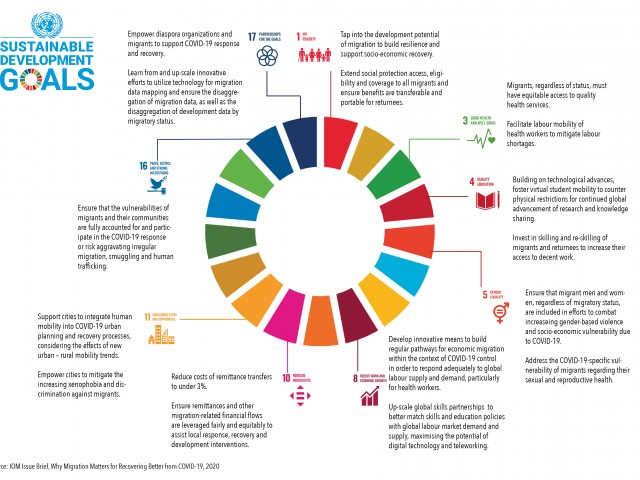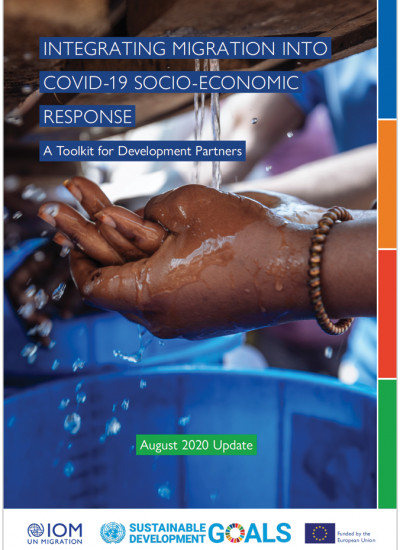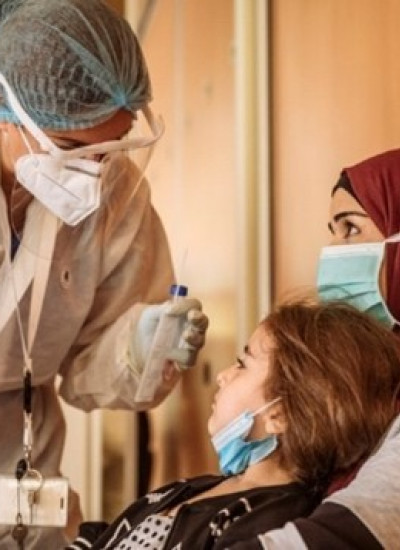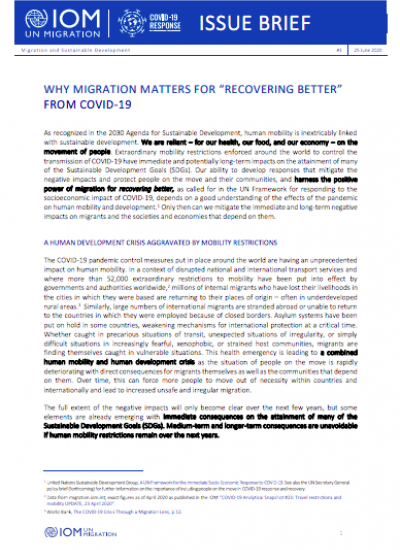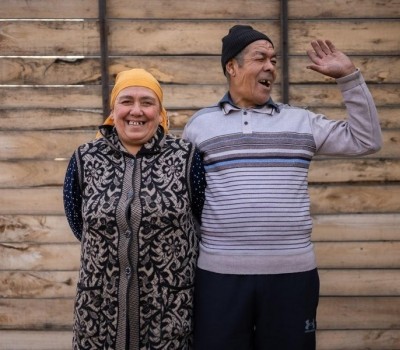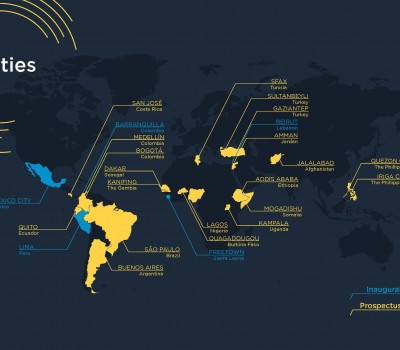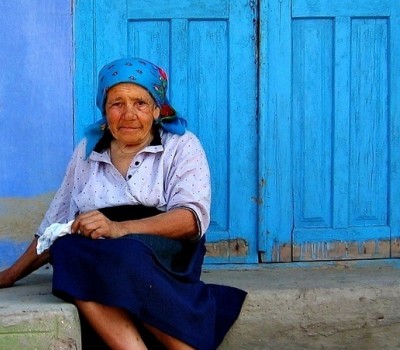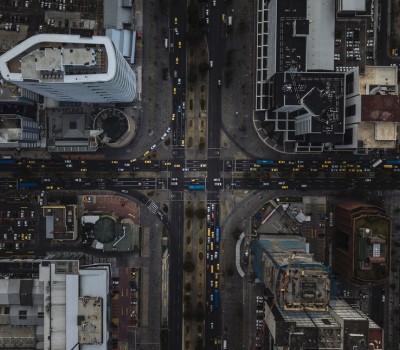The pandemic has had an unprecedented impact on migration and development. With inclusive and integrated development policies, good migration management and effective partnerships, we can harness the potential of human mobility to spur development forward and avoid what some predict is a “lost decade for development.” Good migration governance and safe, orderly, and regular migration in line with the Global Compact for Migration can get us back on track to the SDGs.
The positive contributions of migrants and migration to advance inclusive growth and sustainable development – as outlined in the 2030 Agenda – have been set back by the pandemic. [Click on the image to the right.]
Many migrants and their families are bearing the brunt of travel restrictions and lockdowns, increased unemployment, and uneven access to social protection, exposing many migrants, especially women, and their families to new vulnerabilities. Hundreds of thousands of migrants were stranded in transit, many lacking resources to return home, while others were forced, by circumstances and in some cases by policies, to return to their home countries. Returning migrants are often unable to access employment due to lockdowns and other restrictions, thereby facing significant challenges to providing for themselves and their families. Reduced pathways for regular migration, triggered by lockdown measures and border closures, have pushed too many migrants into irregular situations, which make them more susceptible to exploitation and abuse, including human trafficking and forced labour.
Yet migrants play a significant role not only during COVID-19 as key workers but also beyond by bringing their skills, experience and innovative perspectives to our development efforts. Our ability to develop responses that mitigate the negative impacts of the pandemic, protect people on the move and their families and harness the positive power of migration for recovering better – as called for in the UN framework for responding to the socio-economic impact of COVID-19 – depends on a good understanding of the effects of the pandemic on human mobility and development. We must support migrants to contribute to COVID-19 socio-economic recovery, for instance by: Restarting mobility and expanding safe and regular pathways; empowering diaspora through inclusive financial and investment strategies; ensuring equitable access to services; and protecting migrant workers along global supply chains and in recruitment processes. Our recent research and pilot projects in 9 countries around the world show the importance of including human mobility in COVID-19 recovery and human development plans.
It is therefore essential to identify solutions that enable migrants to efficiently and concretely contribute to socio-economic responses alongside local populations, enabling them to act as agents of change and development. Failure to include migrants and their host communities within COVID-19 plans will not only hinder recovery but will lead to devastating impacts for migrants and their communities.
Working closely as One UN is essential to “build back better” and integrated approaches to migration, COVID-19, and sustainable development rest on collaboration between the UN, local and national governments, civil society organizations, diaspora and migrant associations and so many more essential partners. IOM and our partners have developed a Toolkit to support partners integrate migration into their COVID-19 response and recovery plans, policies, actions, and strategies.
